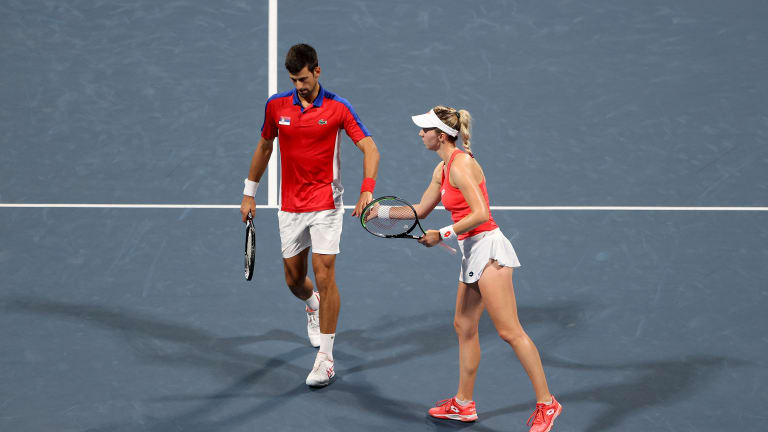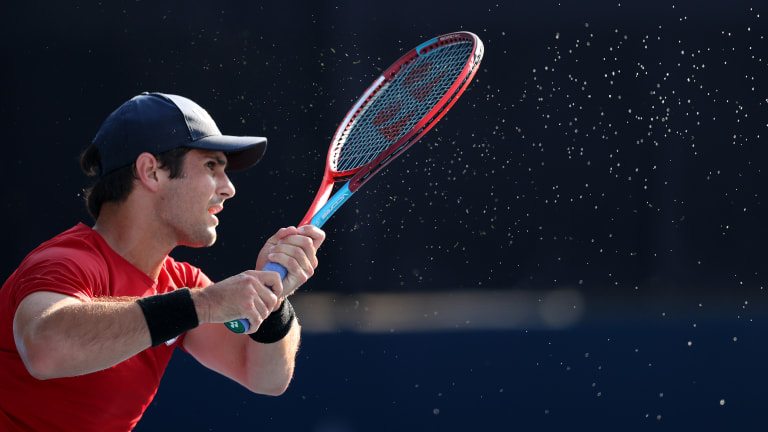Daniil Medvedev warned a chair umpire that he was about to “die” in the withering heat. Top women’s seed Ash Barty was bounced from the singles draw before the ink was dry on the drawsheet. Andy Murray swallowed his pride and flipped a familiar script, withdrawing from the singles in order to focus on doubles. Paola Badosa, a brilliant debutante, had to quit during her quarterfinal match and leave the court in a wheelchair.
The fates of the tennis competitors at these Olympic Games varied widely, but they all deserve special praise for one reason: Unlike many of their peers, including some very celebrated ones, they showed up. This time around, that meant a lot.
The Tokyo Games shaped up as the Bummer Olympics of 2020, played in defiance of the calendar—and in deference to the pandemic—in July 2021. Criticism came in waves. Media reports focused on health risks and the onerous protocols they entailed. The International Olympic Committee took its customary rubbishing over, among other things, corruption, the wasted infrastructure left in the wake of the Games, and the unsavory elements in the host nation selection process.
The controversial decision to press forward with the Tokyo Games stoked fears of a public health disaster and left athletes asking themselves if the prescribed return to the bubble life and social distancing was worth it. “No thanks,” many tennis players said.
Rafael Nadal, who owns gold medals in singles and doubles, begged off Wimbledon and the Games in Tokyo after “listening to my body” and hearing that he needed to take a break in order to prolong his career.
Serena Williams, who has four gold medals, announced her decision to skip the Olympics a day before Wimbledon started, but she declined to articulate her reasons. She had indicated earlier that she was reluctant to leave her family behind due to Covid restrictions.
Even before Roger Federer, who had targeted this Olympiad for years, reaggravated a surgically repaired knee at Wimbledon, he was hedging his bet. “I feel two ways,” the Swiss star said during the French Open. “I would love to play. I wish things were better around the world that we wouldn't even have to debate the thought of, ‘Is it going to happen? Am I going to play or not?’”

